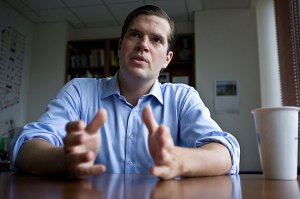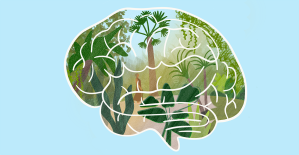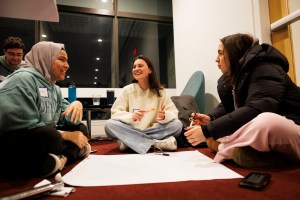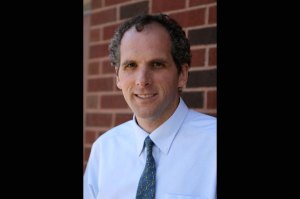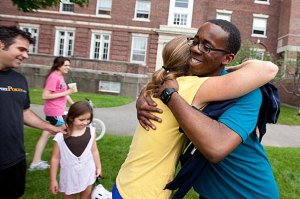All articles
-
Arts & Culture
Black Confederates
A Harvard historian weighs in on a controversy about “black Confederates,” describing how many there were and what meaning they have in an ongoing debate over the causes of the Civil War.
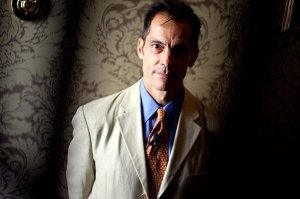
-
Campus & Community
At Ed School, it’s easy being green
Graduate School of Education continues its leadership in the greening of Harvard.

-
Science & Tech
With the Earth as teacher
Students in Earth and Planetary Sciences kicked off their academic year early, spending a late-August week in paradise, observing Hawaii’s volcanoes, green and black sand beaches, and overarching geologic splendor.

-
Campus & Community
‘Dazzling’ fall fellows invade Shorenstein Center
The Joan Shorenstein Center on the Press, Politics and Public Policy, located at Harvard Kennedy School, has announced its fall fellows.
-
Campus & Community
Mossavar-Rahmani Center welcomes new fellows
The Mossavar-Rahmani Center for Business and Government at Harvard Kennedy School has welcomed a new crop of fellows.
-
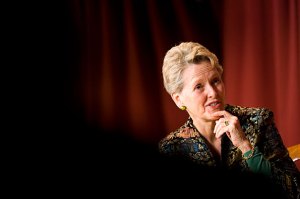
-
Arts & Culture
On summer break, a poem
An undergraduate on summer break is inspired to write a poem celebrating Harvard’s 375th anniversary.
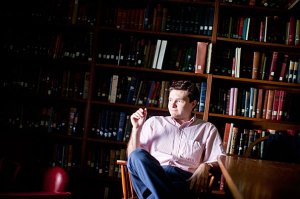
-
Campus & Community
Calling the ‘summer dogs’
After a summer of workouts, Harvard football players look to their opening game against Holy Cross, hoping to create a season to remember.
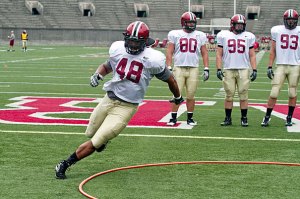
-
Campus & Community
Finding meaning in loss
Jennifer Page Hughes, a psychologist at the Bureau of Study Counsel, coped with a senseless death by helping others — from Harvard students to the families of 9/11 victims — deal with grief.
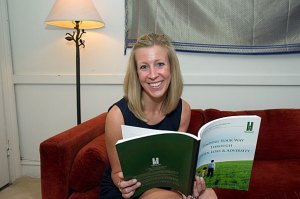
-
Campus & Community
How Harvard celebrated
A look at how Harvard has celebrated some previous anniversaries.

-
Campus & Community
A party starts 375th celebrations
Entertainment, food, festivities highlight October gathering.
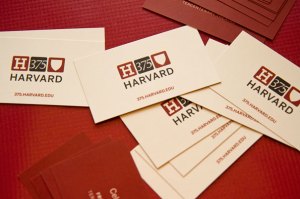
-
Nation & World
Justice for Kenya’s Mau Mau
As a human rights group seeks justice for veterans of an anticolonialist rebellion, a Harvard historian helps to make the case.

-
Science & Tech
Wake-up call
Insomnia is costing the average U.S. worker 11.3 days, or $2,280, in lost productivity every year, according to a study led by Ronald Kessler of Harvard Medical School.

-
Campus & Community
Banner year ahead
Harvard gears up to celebrate an event-filled 375th anniversary, embracing what President Faust calls a “tradition of imaginative change.”
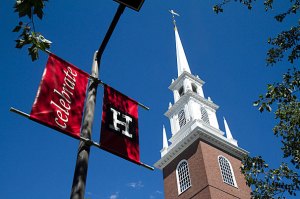
-
Campus & Community
A portrait of change
Preston Williams was honored with a new portrait in Andover Hall. The picture of Williams, the Houghton Research Professor of Theology and Contemporary Change Emeritus, is part of the Harvard Foundation Portraiture Project.
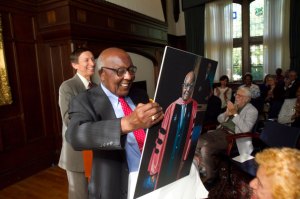
-
Campus & Community
University leaders welcome freshmen
Harvard’s annual convocation ceremony gives members of the Class of 2015 their first taste of the University’s history and traditions.
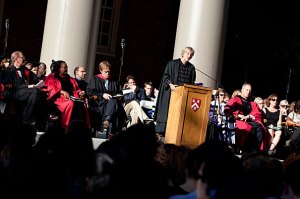
-
Campus & Community
It’s morning in a new year
Harvard President Drew Faust spoke at the first Morning Prayers service, encouraging listeners to consider the past as a “valuable resource” for contemplating the future.

-
Health
First lizard genome sequenced
The green anole lizard is an agile and active creature, and so are elements of its genome. This genomic agility and other new clues have emerged from the full sequencing of the lizard’s genome and may offer insights into how the genomes of humans, mammals, and their reptilian counterparts have evolved since mammals and reptiles…

-
Campus & Community
Remembering 9/11
Harvard plans services, vigils, panels to draw meaning from 10th anniversary of 9/11 tragedy.

-
Campus & Community
Library seeking proposals for Library Lab
The Harvard University Library is soliciting proposals for projects to improve the library via the Library Lab program.
-
Campus & Community
They Ride by Dawn
They are an eclectic group of Harvard students, staff, faculty, and community members. They range in age from their late teens to 50-something. They can be freshmen or CEOs, but they move fast, and under their own power. They ride by bike.
-
Arts & Culture
Creative opportunity
The tradition of visiting faculty at Harvard’s Department of Visual and Environmental Studies brings art and insight to the classroom.

-
Campus & Community
Tropical Storm Irene
Harvard University officials responded to reports of downed utility lines and broken branches, but received no reports of injuries or serious damage as Tropical Storm Irene passed through the region.…
-
Science & Tech
Brain navigation
Hanspeter Pfister, an expert in high-performance computing and visualization, is part of an interdisciplinary team collaborating on the Connectome Project at the Center for Brain Science. The project aims to create a wiring diagram of all the neurons in the brain.

-
Health
From skin cells to motor neurons
Harvard stem cell researchers have succeeded in reprogramming adult mouse skin cells directly into the type of motor neurons damaged in amyotrophic lateral sclerosis, best known as Lou Gehrig’s disease, and spinal muscular atrophy.
